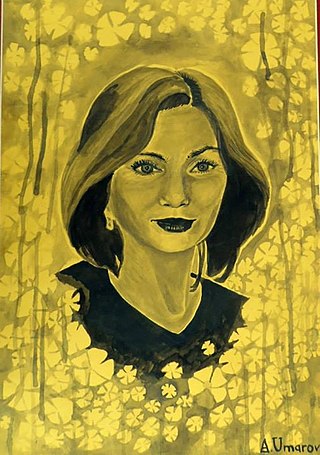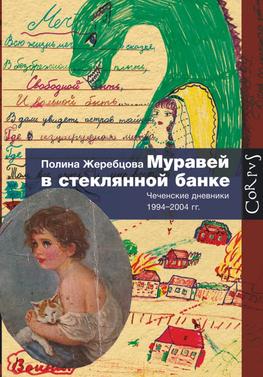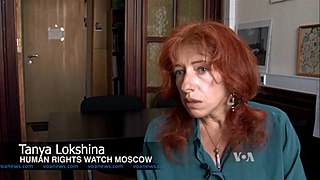
Chechnya, officially the Chechen Republic, is a republic of Russia. It is situated in the North Caucasus of Eastern Europe, close to the Caspian Sea. The republic forms a part of the North Caucasian Federal District, and shares land borders with the country of Georgia to its south; with the Russian republics of Dagestan, Ingushetia, and North Ossetia-Alania to its east, north, and west; and with Stavropol Krai to its northwest.

The Second Chechen War took place in Chechnya and the border regions of the North Caucasus between the Russian Federation and the Chechen Republic of Ichkeria, from August 1999 to April 2009. In August 1999, Islamist fighters from Chechnya infiltrated Russia's Dagestan region, violating Russia's borders. Later in September a series of apartment bombings occurred in Russian cities, Russian authorities were quick to blame Chechen separatists, although no Chechen field commander, or otherwise took responsibility for the attacks. Several historians and political commentators hold the view that the bombings were coordinated by Russian state security services to help bring Putin into the presidency. During the initial campaign, Russian military and pro-Russian Chechen paramilitary forces faced Chechen separatists in open combat and seized the Chechen capital Grozny after a winter siege that lasted from December 1999 until February 2000. Russia established direct rule over Chechnya in May 2000 although Chechen militant resistance throughout the North Caucasus region continued to inflict heavy Russian casualties and challenge Russian political control over Chechnya for several years. Both sides carried out attacks against civilians. These attacks drew international condemnation.

Ramzan Akhmadovich Kadyrov is a Russian politician who currently serves as the Head of the Chechen Republic. He was formerly affiliated to the Chechen independence movement, through his father who was the separatist appointed mufti of Chechnya. He is a colonel general in the Russian military.

Anna Stepanovna Politkovskaya was a Russian journalist and human rights activist, who reported on political events in Russia, in particular, the Second Chechen War (1999–2005).
Lidia Muhtarovna Yusupova is the Coordinator of the law office of the Moscow-based human rights organization Memorial. Formerly, Yusupova was the director of the Grozny office of Memorial. Currently, Yusupova is completing a two-year law fellowship in Moscow.

Vladimir Anatolyevich Shamanov is a retired Colonel General of the Russian Armed Forces who was Commander-in-Chief of the Russian Airborne Troops (VDV) from May 2009 to October 2016 and a former Russian politician. After his retirement in October 2016, Shamanov became head of the State Duma Defense Committee.
In military terminology, a black site is a location at which an unacknowledged black operation or black project is conducted. A 2021 Associated Press news story defined black sites as "clandestine jails where prisoners generally are not charged with a crime and have no legal recourse, with no bail or court order."
Russia incurred much international criticism for its conduct during the Second Chechen War, which started in 1999. The governments of the United States and other countries condemned deaths and expulsions among civilians. The United Nations Commission on Human Rights (UNHCR) passed two resolutions in 2000 and 2001 condemning human rights violations in Chechnya and requiring Russia to set up an independent national commission of inquiry to investigate the matter. However, a third resolution on these lines failed in 2004. The Council of Europe in multiple resolutions and statements between 2003 and 2007 called on Russia to cease human rights violations. The European Court of Human Rights (ECHR) between 2005 and 2007 conducted legal cases brought by Chechens against the Russian government, and in many of these cases held Russia responsible for deaths, disappearances and torture.
The Novye Aldi massacre was the mass murder of Chechen civilians in which Russian forces went on a cleansing operation (zachistka) summarily executing dozens of civilians.
The village had been cluster-bombed a day prior to the massacre, and local residents urged to come out for inspection the next day. Upon entering the village, Russian forces shot their victims in cold blood, with automatic fire at close range. The killings were accompanied by looting, rape, arson and robbery. As a result of the deadly rampage by Russian forces, up to 82 civilians were killed in the spree. Houses of civilians were burnt in an attempt to destroy evidence of summary executions and other crimes. Looting took place on a large scale and organised manner.
Nura Luluyeva was a Chechen woman who was kidnapped and murdered by a Russian death squad in 2000.
The International Foundation for Civil Liberties is a non-profit organization established by the Russian-British oligarch Boris Berezovsky in November 2000. The foundation is headquartered in New York City and headed by Alexander Goldfarb. The stated mission of the foundation is "to provide financial, legal, informational and logistical resources to secure human rights and civil liberties in Russia."
Zura Bitiyeva was a locally well-known Chechen human rights activist who was extrajudicially executed by what is assumed to be a Russian government death squad in 2003 after she complained to the European Court of Human Rights of ill treatment during an earlier illegal detention. Three other members of her immediate family were also killed in the same attack.

Natalya Khusainovna Estemirova was a Russian human rights activist and board member of the Russian human rights organization Memorial. Estemirova was abducted by unknown persons on 15 July 2009 around 8:30 a.m. from her home in Grozny, Chechnya, as she was working on "extremely sensitive" cases of human rights abuses in Chechnya. Two witnesses reported they saw Estemirova being pushed into a car shouting that she was being abducted. Her remains were found with bullet wounds in the head and chest area at 4:30 p.m. in woodland 100 metres (330 ft) away from the federal road "Kavkaz" near the village of Gazi-Yurt, Ingushetia.

Elena Milashina is a Russian investigative journalist for Novaya Gazeta. In October 2009, she was awarded Human Rights Watch's Alison Des Forges Award for Extraordinary Activism.

Anne Nivat is a French journalist and war correspondent who has covered conflicts in Chechnya, Iraq, and Afghanistan. She is known for interviews and character portraits in print of civilians, especially women, and their experiences of war.

Caucasian Knot is an online news site that covers the Caucasus region in English and Russian. It was established in 2001 and Grigory Shvedov is the editor-in-chief. It has a particular focus on politics and on human rights issues, including freedom of the press.

Ant in a Glass Jar: Chechen Diaries 1994–2004 (Russian: "Муравей в стеклянной банке. Чеченские дневники 1994–2004" is a 2014 documentary book that is an author's diary about the years spent in Chechnya from 1994 until 2004. It was written by Polina Zherebtsova, while she was 9–19 years old.

Tanya Lokshina is a human rights researcher, journalist, and writer from Russia. She is director of the Russia program at Human Rights Watch. Lokshina is an expert on the human rights situation in the Post-Soviet states.

Marina Vladimirovna Ovsyannikova is a Russian journalist who was employed on the Channel One Russia TV channel. She worked for Russia's main evening newscast Vremya on Channel One since the beginning of the 2000s, later describing her role as "producing Kremlin propaganda".












